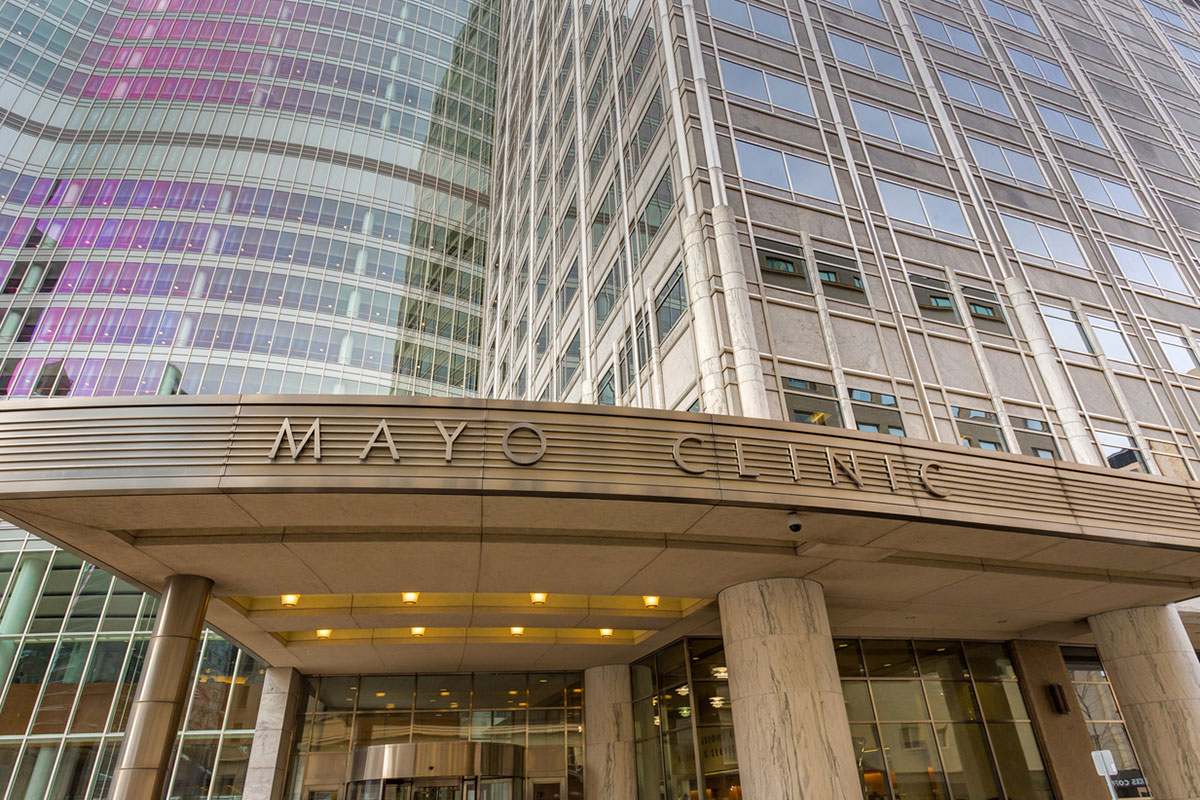
Abstract
Objective: To determine the prevalence of burnout among psychiatry residents, fellows, and attendings (“psychiatry doctors”) prior to and following the COVID-19 pandemic.
Data sources: A systematic search of MEDLINE, Embase, PsycINFO, and PubMed databases was performed to identify studies reporting the prevalence of burnout pre-COVID-19 (pre-March 2020) and post-COVID-19 (post March 2020). The search was limited to articles written in English and published in peer-reviewed journals from January 1, 2010, until June 27, 2024.
Study selection: There were 1,825 studies screened by 2 independent reviewers, with 36 eligible for inclusion. Observational studies and randomized controlled trials reporting the prevalence of burnout using validated tools were eligible for inclusion.
Data extraction: Prevalence data were independently extracted by 2 authors and pooled using a random effects model. A subgroup analysis was performed, stratifying burnout by country income status.
Results: The prevalence of burnout was 37.5% (95% confidence interval [CI], 28.2–47.3; 25 studies; 12,524 psychiatry doctors) prior to the COVID-19 pandemic and 32.0% (95% CI, 18.6–47.0; 12 studies; 7,458 psychiatry doctors) following the COVID-19 pandemic. Almost 1 in 2 psychiatry doctors from middle-income countries reported burnout pre-COVID-19 (49.8% [95% CI, 34.5–65.1]; 3 studies), with no studies reporting the prevalence of burnout in low-income countries. There was significant heterogeneity between studies.
Conclusions: Burnout among psychiatry doctors is common, affecting 1 in 3 both prior to and following the COVID-19 pandemic. Additional studies are needed from psychiatrists in low- and middle-income countries to better characterize the prevalence of burnout in this cohort.
J Clin Psychiatry 2025;86(4):24r15697
Author affiliations are listed at the end of this article.
Members Only Content
This full article is available exclusively to Professional tier members. Subscribe now to unlock the HTML version and gain unlimited access to our entire library plus all PDFs. If you're already a subscriber, please log in below to continue reading.
References (73)

- World Health Organisation, et al. Impact of COVID-19 on People’s Livelihoods, Their Health and Our Food Systems. 2020. Accessed July 9, 2024. https://www.who.int/news/item/13-10-2020-impact-of-covid-19-on-people's-livelihoods-their-health-and-our-food-systems
- De Kock JH, Latham HA, Leslie SJ, et al. A rapid review of the impact of COVID-19 on the mental health of healthcare workers: implications for supporting psychological well-being. BMC Public Health. 2021;21(1):104. PubMed CrossRef
- Breslau J, Finucane ML, Locker AR, et al. A longitudinal study of psychological distress in the United States before and during the COVID-19 pandemic. Prev Med. 2021;143:106362. PubMed CrossRef
- Carison A, Babl FE, O’Donnell SM. Increased paediatric emergency mental health and suicidality presentations during COVID-19 stay at home restrictions. Emerg Med Australas. 2022;34(1):85–91. PubMed
- Habu H, Takao S, Fujimoto R, et al. Emergency dispatches for suicide attempts during the COVID-19 outbreak in Okayama, Japan: a descriptive epidemiological study. J Epidemiol. 2021;31(9):511–517. PubMed CrossRef
- ICD-11 for Mortality and Morbidity Statistics. 2019. Accessed July 9, 2024. https://icd.who.int/browse/2024-01/mms/en#129180281
- Maslach C, Schaufeli WB, Leiter MP. Job burnout. Annu Rev Psychol. 2001;52(1):397–422. PubMed CrossRef
- Balch CM, Freischlag JA, Shanafelt TD. Stress and burnout among surgeons: understanding and managing the syndrome and avoiding the adverse consequences. Arch Surg. 2009;144(4):371–376. PubMed CrossRef
- Bykov KV, Zrazhevskaya IA, Topka EO, et al. Prevalence of burnout among psychiatrists: a systematic review and meta-analysis. J Affect Disord. 2022;308:47–64. PubMed CrossRef
- Rotstein S, Hudaib AR, Facey A, et al. Psychiatrist burnout: a meta-analysis of Maslach Burnout Inventory means. Australas Psychiatry. 2019;27(3):249–254. PubMed CrossRef
- Summers R, Aggarwal R, Bailey T, et al. Psychiatrist Well-Being and Burnout. American Psychiatric Association; 2018. Accessed September 21, 2024. https://www.psychiatry.org/getmedia/5f5cf9ac-3de4-42c1-9e89-0d253361f1c6/APA-BOT-Workgroup-Psychiatrist-Wellbeing-and-Burnout.pdf
- Farrer LM, Clough B, Bekker MJ, et al. Telehealth use by mental health professionals during COVID-19. Aust N Z J Psychiatry. 2023;57(2):230–240. PubMed CrossRef
- Kola L, Kohrt BA, Hanlon C, et al. COVID-19 mental health impact and responses in low-income and middle-income countries: reimagining global mental health. Lancet Psychiatry. 2021;8(6):535–550. PubMed CrossRef
- Moher D, Liberati A, Tetzlaff J, et al. Preferred reporting items for systematic reviews and Meta-Analyses: the PRISMA statement. PLoS Med. 2009;6(7):e1000097. PubMed CrossRef
- Listings of WHO’s Response to COVID-19. 2020. Accessed July 10, 2024. https://www.who.int/news/item/29-06-2020-covidtimeline
- StataCorp. Stata Statistical Software: Release 18. StataCorp LLC; 2023
- Barendregt JJ, Doi SA, Lee YY, et al. Meta-analysis of prevalence. J Epidemiol Community Health. 2013;67(11):974–978. PubMed CrossRef
- McGuinness LA, Higgins JPT. Risk-of-bias VISualization (robvis): an R package and Shiny web app for visualizing risk-of-bias assessments. Res Synth Methods. 2021;12(1):55–61. PubMed CrossRef
- Furuya-Kanamori L, Barendregt JJ, Doi SAR. A new improved graphical and quantitative method for detecting bias in meta-analysis. Int J Evid Based Healthc. 2018;16(4):195–203. PubMed CrossRef
- Agrawal A, De La Torre K, Cooper C, et al. Before and during the first COVID-19 surge: work conditions, burnout, and mental health among resident physicians in a department of psychiatry in the USA. Acad Psychiatry. 2023;47(5):504–509. PubMed CrossRef
- Alkhamees AA, Alrashed SA, Alzunaydi AA, et al. The psychological impact of COVID-19 pandemic on the general population of Saudi Arabia. Compr Psychiatry. 2020;102:152192. PubMed CrossRef
- Almadani AH, Alenezi S, Algazlan MS, et al. Compassion fatigue among practicing and future psychiatrists: a national perspective. Cureus. 2022;14(5):e25417. PubMed CrossRef
- Beschoner P, von Wietersheim J, Jarczok MN, et al. Effort-reward-imbalance, burnout, and depression among psychiatrists 2006 and 2016—changes after a legislative intervention. Front Psychiatry. 2021;12:641912. PubMed CrossRef
- Broderick N, Vaughan R, McNicholas F, et al. Staff stress and burnout in a community adult mental health service. Ir J Psychol Med. 2023;40(3):387–395. PubMed CrossRef
- Chambers CNL, Frampton CMA. Burnout, stress and intentions to leave work in New Zealand psychiatrists; a mixed methods cross sectional study. BMC Psychiatry. 2022;22(1):380. PubMed CrossRef
- Chaukos D, Chad-Friedman E, Mehta DH, et al. Risk and resilience factors associated with resident burnout. Acad Psychiatry. 2017;41(2):189–194. PubMed CrossRef
- Chew QH, Ang LP, Tan LL, et al. A cross-sectional study of burnout and its associations with learning environment and learner factors among psychiatry residents within a National Psychiatry Residency Programme. BMJ Open. 2019;9(8):e030619. PubMed CrossRef
- Domaney NM, Torous J, Greenberg WE. Exploring the association between electronic health record use and burnout among psychiatry residents and faculty: a pilot survey study. Acad Psychiatry. 2018;42(5):648–652. PubMed CrossRef
- Dong P, Lin X, Wu F, et al. Depression, anxiety, and burnout among psychiatrists during the COVID-19 pandemic: a cross-sectional study in Beijing, China. BMC Psychiatry. 2023;23(1):494. PubMed CrossRef
- Gu M, Zheng L, Gu J, et al. Would you choose to be a psychiatrist again? A large-sample nationwide survey of psychiatrists and psychiatry residents in China. Int J Ment Health Syst. 2023;17(1):43. PubMed CrossRef
- Hardy P, Costemale-Lacoste JF, Trichard C, et al. Comparison of burnout, anxiety and depressive syndromes in hospital psychiatrists and other physicians: results from the ESTEM study. Psychiatry Res. 2020;284:112662. PubMed CrossRef
- Jovanović N, Podlesek A, Volpe U, et al. Burnout syndrome among psychiatric trainees in 22 countries: risk increased by long working hours, lack of supervision, and psychiatry not being first career choice. Eur Psychiatr. 2016;32:34–41. PubMed CrossRef
- Kealy D, Halli P, Ogrodniczuk JS, et al. Burnout among Canadian psychiatry residents: a national survey. Can J Psychiatry. 2016;61(11):732–736. PubMed CrossRef
- Myra Kim H, Grau PP, Sripada RK, et al. Autonomy in work location decision and burnout in behavioral health providers: lessons learned from COVID-19. J Affect Disord Rep. 2023;14:100652. CrossRef
- Lee YW, Kudva KG, Soh M, et al. Inter-relationships between burnout, personality and coping features in residents within an ACGME-I Accredited Psychiatry Residency Program. Asia Pac Psychiatry. 2022;14(1):e12413. PubMed CrossRef
- McLoughlin C, Casey S, Feeney A, et al. Burnout, work satisfaction, and well-being among non-consultant psychiatrists in Ireland. Acad Psychiatry. 2021;45(3):322–328. PubMed CrossRef
- Mcloughlin C, Abdalla A, O’Callaghan AK, et al. The impact of COVID-19 on burnout, psychological well-being, and work satisfaction in psychiatry trainees in Ireland. Acad Psychiatry. 2022;46(6):701–709. PubMed CrossRef
- McNicholas F, Sharma S, Oconnor C, et al. Burnout in consultants in child and adolescent mental health services (CAMHS) in Ireland: a cross-sectional study. BMJ Open. 2020;10(1):e030354. PubMed CrossRef
- Morar T, Marais B. Exploring burnout among psychiatric trainees at a South African university. S Afr J Psychiatr. 2022;28(0):10.
- Morovicsová E, Valuš L. Burnout syndrome in psychiatrists in Slovakia: a National Survey. Archives Psychiatry Res Int J Psychiatry Relat Sci. 2022;58(2):201–212.
- Nimmawitt N, Wannarit K, Pariwatcharakul P. Thai psychiatrists and burnout: a national survey. PLoS One. 2020;15(4):e0230204. PubMed CrossRef
- Nuss P, Tessier C, Masson M, et al. Factors associated with a higher Score of burnout in a population of 860 French psychiatrists. Front Psychiatry. 2020;11:371. PubMed CrossRef
- Rakofsky JJ, Dallaghan GB, Balon R. Measuring burnout among psychiatry clerkship directors. Acad Psychiatry. 2018;42(1):68–72. PubMed CrossRef
- Razakarivony O, Khanafer N, Philippe JM, et al. Psychological impact of an acute intervention on medical-psychological emergency unit professionals: the example of hurricane Irma. BJPsych open. 2021;7(4):e113. PubMed CrossRef
- Robbins-Welty G, Nakatani M, Song YK, et al. Psychiatry resident physicians experience personal and professional grief, burnout and depression: results from a national survey. Am J Hosp Palliat Care. 2025;42(3):296–299. PubMed CrossRef
- Rossi A, Cetrano G, Pertile R, et al. Burnout, compassion fatigue, and compassion satisfaction among staff in community-based mental health services. Psychiatry Res. 2012;200(2-3):933–938. PubMed CrossRef
- Summers RF, Gorrindo T, Hwang S, et al. Well-Being, burnout, and depression among North American psychiatrists: the State of our profession. Aust J Pharm. 2020;177(10):955–964. PubMed CrossRef
- Tateno M, Jovanović N, Beezhold J, et al. Suicidal ideation and burnout among psychiatric trainees in Japan. Early Interv Psychiatry. 2018;12(5):935–937. PubMed CrossRef
- Tipa RO, Tudose C, Pucarea VL. Measuring burnout among psychiatric residents using the Oldenburg Burnout Inventory (OLBI) instrument. JMedLife. 2019;12(4):354–360. PubMed CrossRef
- Vacca A, Minò MV, Colizzi I, et al. The emotional impact of the operator in the care of patients with mental disorders during the pandemic: measure of interventions on compassion fatigue and burn-out. Psychiatr Danub. 2021;33(suppl 9):108–113. PubMed
- Volpe U, Luciano M, Palumbo C, et al. Risk of burnout among early career mental health professionals. J Psychiatr Ment Health Nurs. 2014;21(9):774–781. PubMed CrossRef
- Westercamp N, Wang RS, Fassiotto M. Resident perspectives on work-life policies and implications for burnout. Acad Psychiatry. 2018;42(1):73–77. PubMed CrossRef
- Wilkie T, Jones RM, Ramshaw L, et al. Contributors to physician burnout and well-being in forensic psychiatrists in Canada. J Am Acad Psychiatry L. 2024;52(1):41–50. PubMed CrossRef
- Yao H, Wang P, Tang YL, et al. Burnout and job satisfaction of psychiatrists in China: a nationwide survey. BMC Psychiatry. 2021;21(1):593. PubMed CrossRef
- Yoon JD, Daley BM, Curlin FA. The association between a sense of calling and physician Well-Being: a national Study of primary care physicians and psychiatrists. Acad Psychiatry. 2017;41(2):167–173. PubMed CrossRef
- Chen C, Meier ST. Burnout and depression in nurses: a systematic review and meta-analysis. Int J Nurs Stud. 2021;124:104099. PubMed CrossRef
- Huo L, Zhou Y, Li S, et al. Burnout and its relationship with depressive symptoms in medical staff during the COVID-19 epidemic in China. Front Psychol. 2021;12:616369. PubMed CrossRef
- Koutsimani P, Montgomery A, Georganta K. The relationship between burnout, depression, and anxiety: a systematic review and meta-analysis. Front Psychol. 2019;10:284. PubMed CrossRef
- Hewitt DB, Ellis RJ, Hu YY, et al. Evaluating the association of multiple burnout definitions and thresholds with prevalence and outcomes. JAMA Surg. 2020;155(11):1043–1049. PubMed CrossRef
- Kwok C. Depression, stress, and perceived medical errors in Singapore psychiatry residents. Acad Psychiatry. 2021;45(2):169–173. PubMed CrossRef
- Kumar S. Burnout and psychiatrists: what do we know and where to from here?. Epidemiol Psychiatr Sci. 2011;20(4):295–301. PubMed CrossRef
- Ligibel JA, Goularte N, Berliner JI, et al. Well-Being parameters and intention to leave Current institution among academic physicians. JAMA Netw Open. 2023;6(12):e2347894. PubMed CrossRef
- Chandola T, Kumari M, Booker CL, et al. The mental health impact of COVID-19 and lockdown-related stressors among adults in the UK. Psychol Med. 2022;52(14):2997–3006. PubMed CrossRef
- COVID-19 Mental Disorders Collaborators, Herrera AMM, Shadid J, et al. Global prevalence and burden of depressive and anxiety disorders in 204 countries and territories in 2020 due to the COVID-19 pandemic. Lancet. 2021;398(10312):1700–1712. PubMed
- Wright T, Mughal F, Babatunde OO, et al. Burnout among primary health-care professionals in low- and middle-income countries: systematic review and meta-analysis. Bull World Health Organ. 2022;100(6):385–401A. PubMed CrossRef
- COVID-19- Australian Institute of Health and Welfare. 2025. Accessed September 16, 2025. https://www.aihw.gov.au/suicide-self-harm-monitoring/data/covid-19
- Grimshaw B, Chaudhuri E. Mental-health-related admissions to the acute medical unit during COVID-19. Clin Med. 2021;21(1):e77–e79. PubMed CrossRef
- International Classification of Diseases. Burn-out an “occupational phenomenon”. In: International Classification of Diseases; 2019. Accessed July 12, 2024. https://www.who.int/news/item/28-05-2019-burn-out-an-occupational-phenomenon-international-classification-of-diseases
- Aksunger N, Vernot C, Littman R, et al. COVID-19 and mental health in 8 low- and middle-income countries: a prospective cohort study. PLoS Med. 2023;20(4):e1004081. PubMed CrossRef
- Hwang CE, Scherer RF, Fall Ainina M. Utilizing the Maslach burnout inventory in cross-cultural research. Int J Manag. 2003;20(1):3–10.
- Schwartz HI, Vingiano W, Perez CB. Autonomy and the right to refuse treatment: patients’ attitudes after involuntary medication. Psychiatr Serv. 1988;39(10):1049–1054. PubMed CrossRef
- Schaufeli WB, Van Dierendonck D. A cautionary note about the cross-national and clinical validity of cut-off points for the Maslach Burnout Inventory. Psychol Rep. 1995;76(3 Pt 2):1083–1090. PubMed CrossRef
- Squires A, Finlayson C, Gerchow L, et al. Methodological considerations when translating “burnout.” Burn Res. 2014;1(2):59–68. PubMed CrossRef





